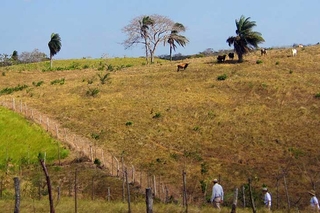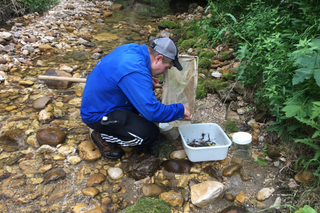Students investigate the scientific principles underpinning sustainability in relation to natural resources, environmental quality, and human health. They analyze resource availability, distribution, growth, and depletion rates while exploring social structures governing resource extraction, use, conservation, and consumption. Students may focus on systems theory to sustainability challenges, engaging in interdisciplinary study that combines technical, scientific, historical, political, and economic perspectives. This comprehensive approach equips students with the knowledge and analytical skills to address complex sustainability issues in the real world.
- Sustainable forestry
- Fisheries management
- Water resources
- Energy resources
- Wildlife and biodiversity conservation
- Parks and protected areas management
- Sustainable agriculture and food systems
- Circular economy and waste management
- Bachelor of Science (BA): Emphasizes interdisciplinary approaches and policy aspects of sustainabillity methods
- Bachelor of Arts (BS): Focuses more on scientific and quantitative analysis
- Environmental resource management
- Sustainable development consulting
- Conservation biology and ecology
- Renewable energy sector
- Environmental policy and planning
- Corporate sustainability
- Natural resource agencies (e.g., USFS, BLM, NOAA)
- Environmental non-profit organizations
- Sustainable tourism and recreation management
- Green technology and innovation firms
Suggested Coursework
Students in the Sustainability & Natural Resources Concentration must complete six courses of their choosing related to sustainability & resources
Related Organizations
-
Center for Business and Environment
The CBEY community connects people, ideas, and resources to foster business and cross-sector solutions to global challenges.
-
Environmental Leadership & Training Initiative
ELTI trains and supports people from all sectors and backgrounds to restore and conserve tropical forest landscapes
-
Hixon Center for Urban Ecology
Bridging scientific knowledge with practice through
-
Tsai CITY
Inspires students from diverse backgrounds and disciplines to seek innovative ways to solve real-world problems.
-
Ucross High Plains Stewardship Initiative
Fostering land stewardship and conservation in the American West through teaching, research, outreach and leadership.
-
Urban Resources Initiative
URI offers paid Greenspace and GreenSkills internships for Yale students.
-
Yale Institute for Biospheric Studies
The Yale Institute for Biospheric Studies (YIBS) is the umbrella environmental science center on campus.







